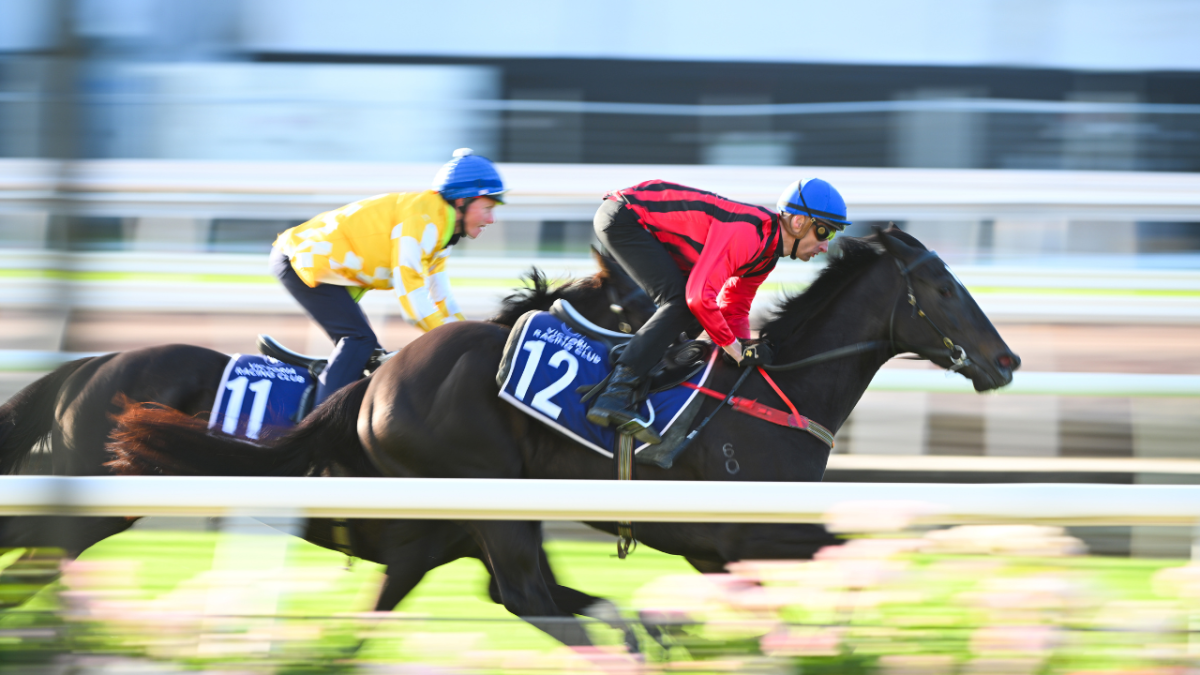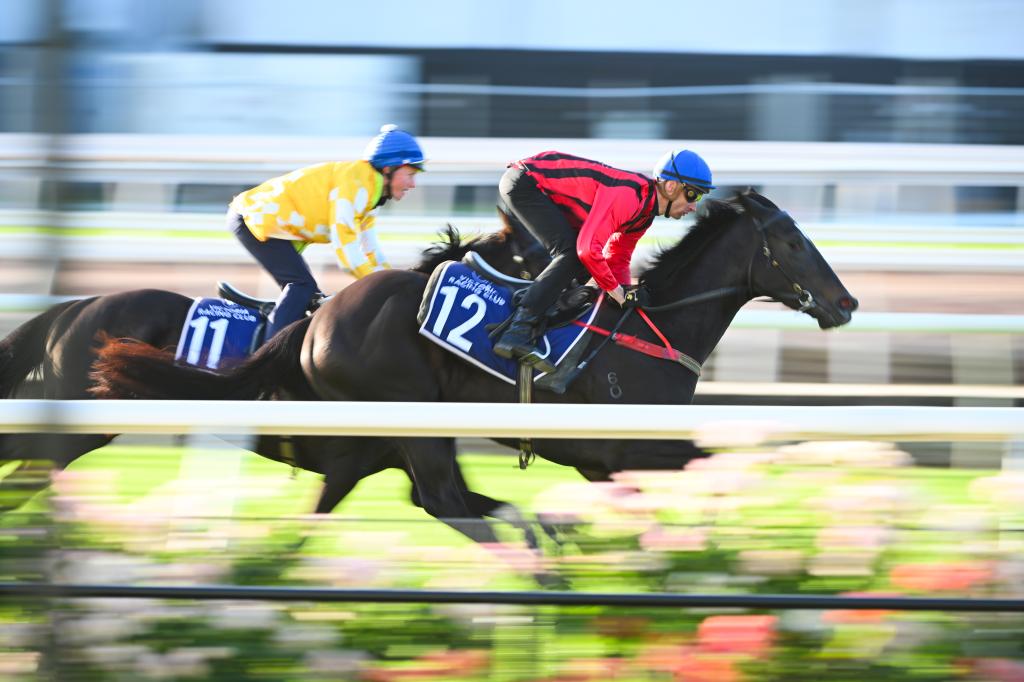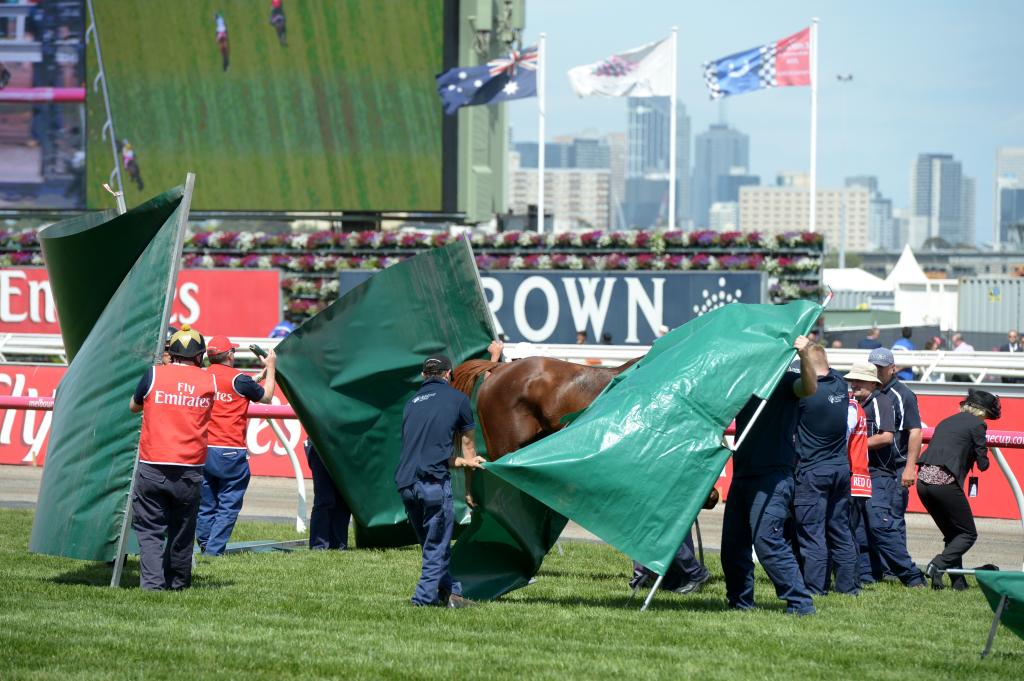
Even if you hate the Melbourne Cup, you probably know famous winners Makybe Diva and Phar Lap. For decades, our most famous horse race has lived up to its name and stopped the nation, with Aussies putting down the tools and betting hundreds of millions on the outcome. I’m talking big bucks here — in 2021, we gambled $223.8 million on the race. But for every famous horse’s name you know, there are thousands of names you’ll never know. The very existence of horse racing encourages an industry plagued with animal cruelty allegations.
Confused why your mates are increasingly saying ‘Nup to the Cup‘? You’ve come to the right place.
Why the Melbourne Cup’s existence means horses will be mistreated
High rate of turnover
Just like in any sport, only the elite make it to races as renowned as the Melbourne Cup. The horses who are deemed fast and strong enough are treated like equine royalty. But when a horse doesn’t make the cut or retires after two or three years of solid racing, it’s not the same thing as a rugby player moving from A-grade to the bench.
The retired horses must be looked after by their trainers or owners but without the draw card of winnings, there is little value for owners to keep maintaining the care.
According to a 2017 Australian Ethical report, approximately 8,500 adult thoroughbreds exit the industry each year. Although there is a public expectation that these horses will be cared for and moved to greener pastures after their time on the track, there isn’t much transparency about what happens to the horses once they’re out of the spotlight.
Racing Victoria currently has the Off The Track and RESET programs to help place retired racehorses into second careers. But the RSPCA maintains that there is little to no system in place to monitor what actually happens to racehorses once they’ve retired.

The risk of injury or death is incredibly high
No matter how you sugarcoat it, horse racing and the Melbourne Cup has resulted in the deaths of many racehorses.
The Coalition for the Protection of Racehorses has reported that at least 168 horses have died on Australian race tracks this year. Shockingly, it’s the highest number of deaths since 2014.
Senator for NSW Mehreen Faruqi – who is firmly against the Melbourne Cup – backed up that statistic.
“A horse is killed on racetracks in Australia every two days on average,” she told PEDESTRIAN.
As for the Melbourne Cup specifically, there have been seven deaths during and in the lead-up to the event from 2013 to 2020. Six out of seven of these deaths saw the horses euthanised on the track.
Following these deaths, Racing Victoria commissioned a review into the deaths of international horses at the Melbourne Cup. They made 44 recommendations and adopted 41 of them into practice. The biggest one is that horses have to undergo a CT scan of their limbs before they race.
But while these measures are great, animal welfare organisations say that it’s not enough. CT scans can’t always show whether a horse under that much stress and strain will have a catastrophic event on the track. Jockeys are still using whips, which the RSPCA believe “cannot be justified given that performance is influenced more by genetics, preparation and rider skill.”
“Horses aren’t just killed on racetracks,” Faruqi explained.
“Many end up in abattoirs. And even if horses survive, they are routinely subjected to cruel practices like whipping.”

Mistreatment allegations
Back in 2019, ABC’s 7:30 reported findings from a two-year investigation in which they alleged that hundreds of race horses were being sent to slaughterhouses, despite official data from Racing Australia claiming that less than one per cent of horses retiring each year end up at an abattoir. If correct, this number would equate to 34 horses a year.
The report also alleged that there was widespread animal cruelty within the Australian slaughterhouses.
Animal welfare and behaviour scientist Professor Paul McGreevy – who the ABC reported had 25 years of experience in the racing industry – told 7:30 that the treatment of former racehorses was disgusting.
“It is absolutely unacceptable that we could let our equine athletes down in this way,” Professor McGreevy told the ABC.
“These represent atrocious practice. It’s the racing industry that’s responsible for exposing these animals to this miserable end.”
But it’s not just in death that many horses face shit conditions.
In 2020, Jockey Kerrin McEvoy was fined $50,000 and suspended for 13 meetings for exceeding whipping regulations. He stuck his horse Tiger Moth 13 times before the 100m mark while the rules allow for five.
In 2022, Melbourne Cup winner Darren Weir, his former assistant trainer Jarrod McLean and stablehand Tyson Kermond pled guilty to animal cruelty charges. They had been using an electric cattle prod known as a “jigger” on three horses in 2018.
The court heard from equine behaviour expert Dr Andrew McLean who claimed that the use of the device was to make the horses run faster out of fear of the pain the jigger caused.
While it’s great that these laws regarding the welfare of the horses and the regulations on race day are in place, there is a lot riding for the jockeys, trainers and horse owners behind the scenes. Again, animal welfare groups don’t feel that these regulations are enough to stop the horses suffering when the trainer pushes the boundaries.
“Cruelty in horse racing is systemic,” Senator Faruqi said.
“We know that horse racing is inhumane. It is deadly and is completely incompatible with animal welfare. The world absolutely needs to end horse racing.”
So what do we do?
As I’m sure you’ve seen on your mate’s Instagram Stories each November, there have been more and more Aussies boycotting the celebration of the Melbourne Cup. Instead, there’s a movement called ‘Nup To The Cup which aims to turn the celebration of the event on its head by allowing Aussies to do what we do best (get on the piss) but without supporting a race that has so many negatives.
Senator Faruqi has been a vocal supporter of this initiative and encourages people to do mroe than share a ‘Nup To The Cup post on IG.
“The Melbourne Cup is not a party. The Melbourne Cup is a carnival of cruelty, gambling and alcohol. More and more people are realising that,” she said.
Senator Faruqi and The Greens have started a campaign encouraging people to contact the sponsors of the Melbounre Cup and ask them to stop sponsoring cruelty.
“People can join this movement (#NuptotheCup) by joining community groups.
“People can write to their local MP people, people can write to the Minister for Agriculture at the federal level or to their ministers in their own state.”
There you have it, folks. The truth is pretty grim, isn’t it?



